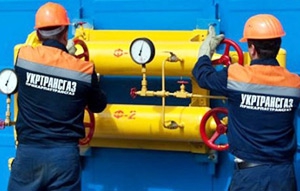Naftogaz to Buy 1.1bn m³ for Ukraine in March
Ukrainian state monopoly supplier Naftogaz Ukrainy has issued letters of credit under the loan agreement with Citi and Deutsche Bank secured by the World Bank. They total €220mn ($231mn) and will be used this month to buy gas from European suppliers selected through the World Bank’s auctions, it said March 1. It is planned to buy up to 1.1bn m³, with payment due in April upon completion of the relevant gas deliveries to Ukraine.
Naftogaz has to repay the loan within 12 months following the lending. The loan facility secured by the World Bank totals the equivalent of $500mn. The rest of the loan facility will be used for gas purchases based on the current market conditions.
Naftogaz asks to join legal challenge to EC
Separately, Naftogaz has applied to the General Court of the Court of Justice of the European Union (CJEU) with a request for leave to intervene in the case initiated by PGNiG German business, PGNiG Supply & Trading (PGNiG ST) against the European Commission, it said March 1.
The case challenges the EC decision of October 28, 2016 in respect of Opal, the line carrying Nord Stream gas southwards across Germany to the Czech Republic. The decision enables Gazprom to significantly increase the use of Opal capacity from 50% to 80%, and deliver more gas through Nord Stream, although since the case was brought, capacity auctions have been halted. Only January capacity was sold, although flows began rising in late December and exceeded the 80% ceiling.
Lawyers representing PGNiG told NGW this week that the decision was against a number of EU treaties and regulations and came about from pressure exerted by Germany on the EC.
According to the CJEU’s statute, a legal entity may join a case before the CJEU where it can establish an interest. Naftogaz believes that the EC decision was wrong and could jeopardise the stability of gas supplies to Ukraine because of possible interruption of gas flows from Poland. This damages Naftogaz' competitiveness and represents an "unexpected change in regulatory and market conditions for the company," it said.
Joining the case will enable Naftogaz to present additional arguments and gain access to the case files, it said. The request by Naftogaz is now awaiting consideration in the court.

(Credit: Naftogaz Ukrainy)
Naftogaz concerned over Gazprom flows
Earlier this week, Naftogaz also complained about Gazprom's behaviour with regard to gas flows through Ukraine at the Sudzha entry point from Russia, alleging it was in breach of its duties, according to the transit agreement.
In addition to the failure to maintain contractual pressure in its system, Naftogaz said: "Gazprom also consistently exceeds the maximum fluctuation limit for daily gas withdrawal at exit points from the Ukrainian transmission system, which is set at 4.5% for the Uzhhorod point [from Ukraine into Slovakia] according to the transit contract. In some days of February, the fluctuations were twice that limit. Furthermore, in certain periods of this month, the quality of Russian gas supplied to Ukraine’s GTS for transit deviated from the contract conditions."
Within the quick response framework, the EC was duly informed of the abrupt drop of pressure at Sudzha GMS. Naftogaz and the European Commission both said they are seriously concerned about the Russian side’s failure on its contractual obligation
William Powell



